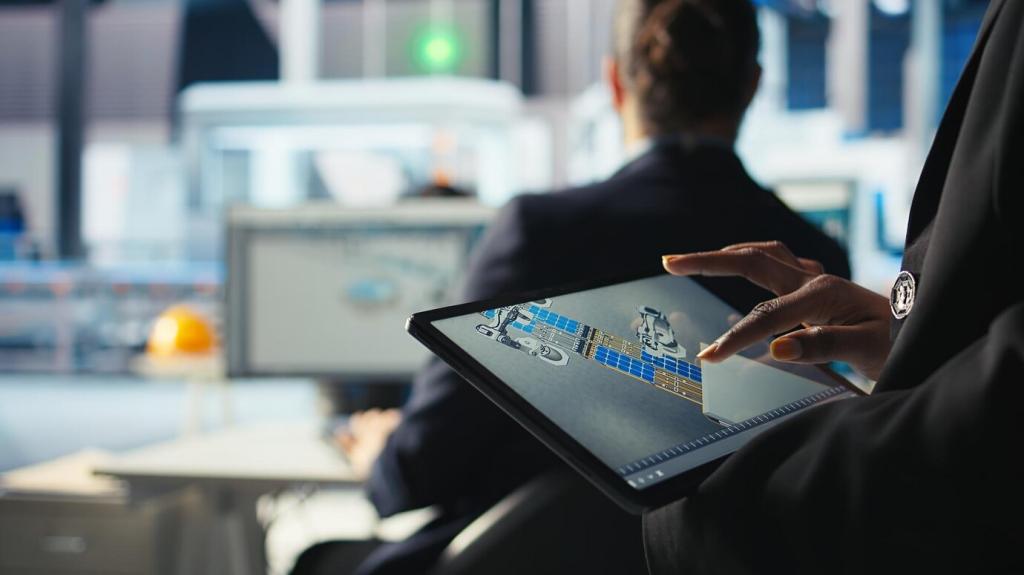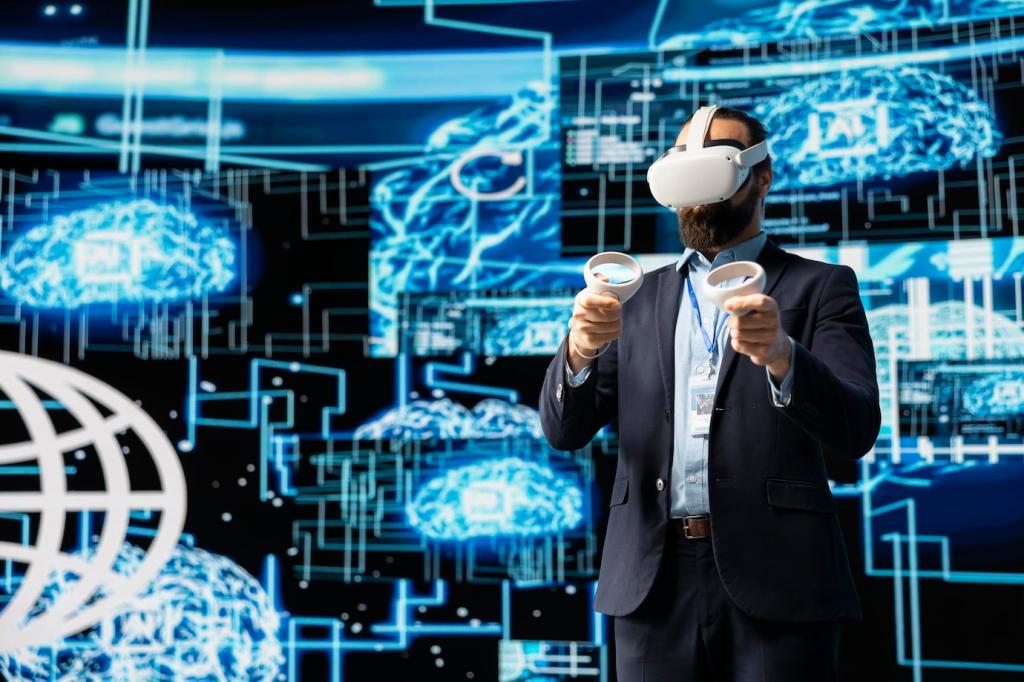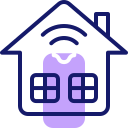
Sustainable Smart Home Solutions for the Future
Embracing sustainability and intelligent technology is no longer a distant vision but an everyday reality for homeowners. Sustainable smart home solutions are transforming our living spaces, making them more energy-efficient, secure, comfortable, and eco-friendly. This page explores the innovative intersection of sustainability and smart technology, highlighting how forward-thinking solutions can help you build a smarter, greener, and more resilient home for the future.
Intelligent Heating and Cooling Systems
Smart thermostats and adaptive climate controls are redefining home heating and cooling by learning your habits and adjusting temperatures in real time. These systems use occupancy sensors, geofencing, and weather forecasts to deliver precise comfort only when needed, avoiding needless energy use. With remote monitoring and scheduling via smartphone apps, homeowners can fine-tune their environments from anywhere, ensuring efficient energy usage even when they’re not at home. Over time, these intelligent systems reduce costs and carbon footprints by preventing energy waste while maintaining optimal indoor conditions, representing a significant leap toward sustainable living.
Solar Integration and Renewable Energy Management
The integration of rooftop solar panels with smart home energy management is revolutionizing renewable energy adoption at the household level. Smart inverters and energy storage solutions now intelligently capture, store, and deploy solar power according to optimal times, aligning with both consumption patterns and grid demand. Automated systems can switch between solar, battery, or grid sources, ensuring continuous and efficient power supply. As technology advances, homeowners can even feed excess energy back into the grid, supporting community-wide sustainability and sometimes earning incentives, making the transition to renewable power both eco-conscious and financially sound.
Advanced Power Monitoring and Reporting
Today’s smart homes come equipped with sophisticated energy monitoring devices that track every watt consumed. These devices provide real-time feedback and granular usage analytics, empowering homeowners to identify high-energy appliances, set consumption limits, and receive actionable recommendations for savings. This transparency not only drives informed decision-making but encourages behavioral changes that collectively make a significant environmental impact. As these reporting tools become more user-friendly and accurate, they form the backbone of a conscious, energy-efficient lifestyle, ensuring every action contributes meaningfully to sustainability goals.
Automated Irrigation and Weather-Based Control
Smart irrigation systems leverage local weather forecasts, soil moisture sensors, and landscape profiling to deliver precisely the right amount of water for gardens and lawns. Gone are the days of scheduled sprinklers running during rain—these automated systems dynamically adjust watering routines to match real-time conditions, ensuring plants thrive with minimal waste. Homeowners benefit from dramatically reduced water bills and healthier gardens while contributing to broader conservation efforts. Over time, widespread adoption of this technology can significantly decrease urban water demand, making it a cornerstone of sustainable landscaping.
Leak Detection and Preventive Systems
Modern leak detection technology is advancing rapidly, protecting homes from potentially catastrophic water damage while saving precious resources. Smart sensors, installed in bathrooms, kitchens, and basements, continuously monitor for abnormal moisture or flow patterns. When a leak is detected, instant alerts are sent to homeowners’ devices, and in some cases, water supplies are automatically shut off to prevent further loss. Not only does this rapid response minimize repairs and insurance claims, it also significantly curtails unnecessary water wastage, reinforcing the importance of proactive, technology-driven home maintenance.
Adaptive Appliances for Efficient Water Use
Innovative appliances such as dishwashers, washing machines, and showers now come equipped with adaptive technology to minimize water use while maintaining high performance. Equipped with sensors and intelligent algorithms, these appliances adjust their cycles based on load size, fabric type, or detected dirt levels, maximizing cleaning power with minimal resources. Furthermore, smart scheduling allows routines to run during periods of lower environmental impact or heightened utility incentives. This shift toward responsive, data-driven appliances marks a crucial step in redefining daily home activities to align with sustainable water management.
Previous slide
Next slide
Eco-Conscious Air Quality and Comfort Control
Smart ventilation systems actively assess indoor air for pollutants like volatile organic compounds (VOCs), particulate matter, and carbon dioxide, dynamically adjusting airflow and filtration levels. When sensors detect elevated contaminants, these systems automatically increase ventilation rates or engage advanced filtration to restore safe air quality. For allergy sufferers or urban dwellers, this technological leap means cleaner, healthier air year-round without manual intervention. Moreover, remote access and automation ensure efficient system operation, blending indoor comfort with a sophisticated, sustainable approach to health and wellness.
Balancing humidity is key to maintaining both health and home integrity. Smart dehumidifiers and humidifiers work in concert with weather data and occupancy sensors, dynamically regulating indoor moisture levels. This prevents issues such as mold growth, static electricity, or respiratory discomfort. By operating only when needed and scaling power consumption to precise requirements, these systems conserve energy while protecting both people and property. Their seamless integration into whole-home automation platforms makes leading-edge air quality management easier and more effective for everyone.
Allowing natural daylight to fill a home not only enhances mood but fosters energy savings. Smart shading solutions adjust window treatments throughout the day based on sun position, occupancy, and thermal load, minimizing the need for artificial lighting or extra cooling. Automated skylights and light-harvesting systems further enhance illumination, promoting circadian wellness and reducing reliance on electricity. As homes become more attuned to both human needs and environmental conditions, these technologies foster comfort, sustainability, and reduced energy bills through intelligent use of natural resources.

